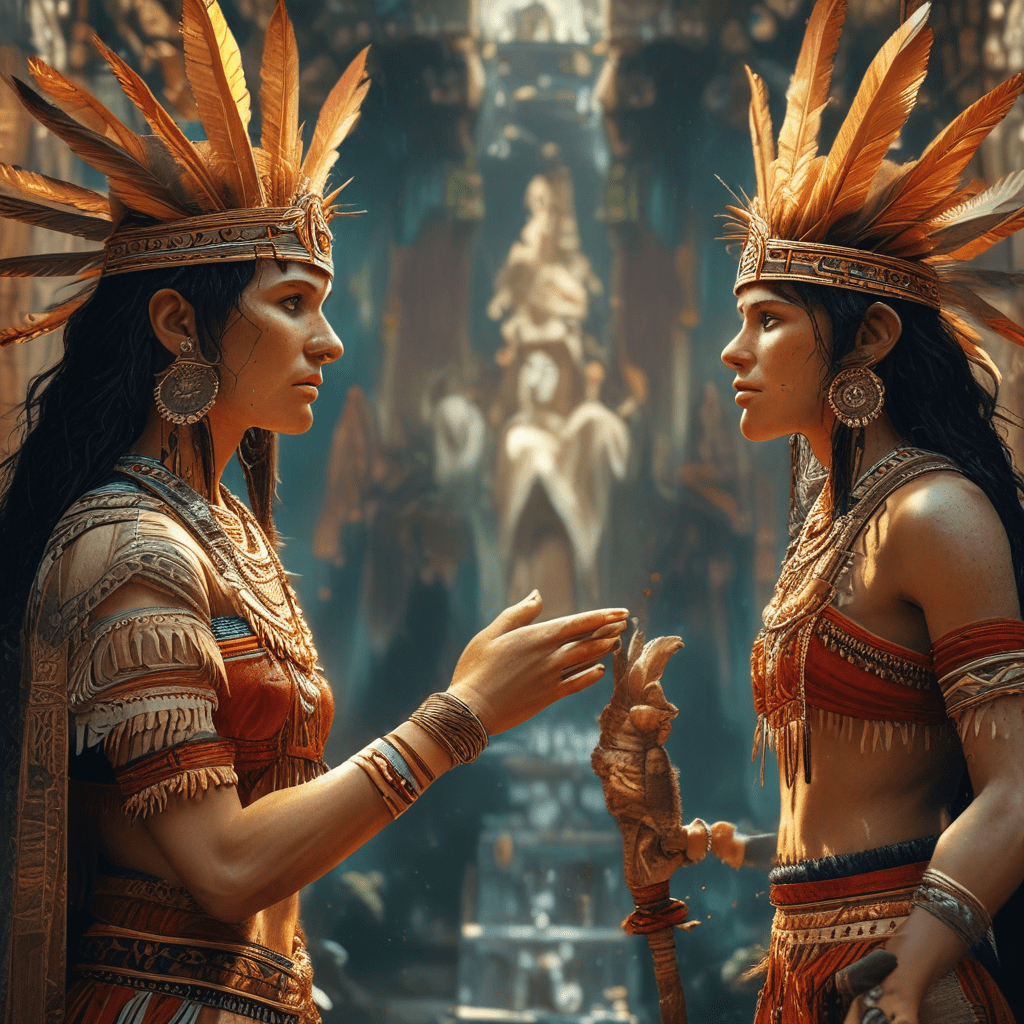The Mountain of Eternal Youth: Myths of Immortality in High Places
Introduction to the Concept of Immortality
Immortality is a concept that transcends cultures and epochs, often defined as the ability to live forever or to exist beyond the limits of human life. In various cultural contexts, immortality has taken on different meanings, from the eternal life promised in religious beliefs to the scientific pursuit of extending human lifespan. The fascination with eternal life stems from a deep-seated human desire to overcome the inevitability of death and to achieve a lasting legacy.
The Origins of the Mountain of Eternal Youth Myth
The myth of the Mountain of Eternal Youth has ancient roots, appearing in various forms across civilizations. This myth often represents a physical location where one can achieve immortality or eternal youth, symbolizing a realm that is separate from everyday life. The cultural significance of these myths varies: for some, they embody the hope of rejuvenation, while for others, they reflect a deeper understanding of the spiritual journey one must undertake to attain enlightenment.
Prominent Legends and Stories
Throughout history, numerous legends have emerged that encapsulate the quest for eternal youth. Some of the most notable include:
- The Fountain of Youth: Perhaps the most famous story, the Fountain of Youth was sought by Spanish explorer Ponce de León in the early 16th century. According to legend, this mythical fountain was located in Florida, granting rejuvenation to those who drank from it.
- The Elixir of Life: In Chinese mythology, the Elixir of Life is a substance that grants immortality. It was often sought by Taoist alchemists who believed that through meditation and the right practices, they could discover this life-giving potion.
- The Golden Apples of the Hesperides: In Greek mythology, the Golden Apples were said to grant immortality to those who consumed them. These magical fruits were guarded by the Hesperides, nymphs who lived in a garden at the edge of the world.
Symbolism of Mountains in Immortality Myths
Mountains often symbolize sacred spaces in various cultures, representing a connection between the earth and the divine. They are seen as places of enlightenment, spiritual awakening, and the pursuit of higher knowledge. The ascent of a mountain can be viewed as a metaphor for the journey toward immortality:
- Physical Ascent: Climbing a mountain often requires great effort and perseverance, symbolizing the challenges faced in the quest for eternal life.
- Spiritual Elevation: Many cultures believe that reaching the summit of a mountain brings one closer to the heavens, allowing for encounters with deities or the realization of eternal truths.
Geographical Locations Tied to the Myth
Several mountains are deeply intertwined with myths of eternal youth. Notable examples include:
- Mount Olympus: In Greek mythology, this mountain was considered the home of the gods and a place where mortals could achieve divine favor and possibly immortality.
- Mount Meru: In Hindu and Buddhist cosmology, Mount Meru is believed to be the center of all physical, metaphysical, and spiritual universes, often associated with immortality and eternal life.
These landscapes inspire awe and serve as enduring symbols of the eternal, further embedding the myth of eternal youth in human culture.
Immortality in Eastern vs. Western Myths
The pursuit of immortality is viewed differently across cultures. In Eastern philosophies, such as Buddhism and Taoism, the emphasis is often on achieving enlightenment and inner peace rather than simply extending life:
- Buddhism: Teaches that attachment to life and the physical world leads to suffering; thus, the goal is to attain Nirvana, a state beyond life and death.
- Taoism: Focuses on harmony with the Tao, or the natural order, believing that by aligning oneself with the universe, one can achieve longevity and spiritual immortality.
Conversely, Western perspectives, shaped by Christianity and Greek mythology, often highlight the desire for physical immortality and an afterlife, viewing death as an enemy to be conquered.
The Psychological Appeal of Immortality Myths
Human beings have an intrinsic fear of death and aging, leading to the creation of myths that provide comfort and hope. These narratives serve several psychological purposes:
- Reassurance: Immortality myths offer solace in the face of mortality, suggesting that life continues in some form after death.
- Legacy: They encourage the pursuit of lasting achievements, motivating individuals to leave a mark on the world.
- Exploration of Self: Engaging with these myths allows for introspection about the meaning of life and the inevitability of death.
Modern Interpretations and Cultural Impact
Today, the myths of eternal youth continue to influence literature, film, and popular culture. Contemporary narratives often reinterpret these ancient stories, reflecting modern society’s obsession with youth and longevity:
- Literature: Novels and stories often explore themes of immortality, questioning the morality and implications of living forever.
- Media: Movies and television shows frequently depict characters seeking eternal youth, showcasing both the allure and the consequences of such a pursuit.
Additionally, advancements in science and medicine aim to extend life, paralleling the age-old myths and raising ethical questions about the implications of achieving immortality.
Critique of the Pursuit of Immortality
While the quest for eternal youth is enticing, it is essential to critique this pursuit. Ethical considerations arise, including:
- Resource Allocation: The focus on extending life may divert attention from addressing pressing social issues.
- Quality of Life: Living longer does not guarantee a fulfilling or meaningful existence; the quality of life must be prioritized.
- Environmental Impact: An increasing population of individuals seeking longevity may strain natural resources and the environment.
Conclusion: The Enduring Allure of Eternal Youth
Myths of eternal youth continue to hold a powerful place in human culture, reflecting our deepest desires and fears. As society grapples with the concepts of mortality and the quest for longevity, these narratives remain relevant, encouraging us to reflect on our lives and the legacies we leave behind. Ultimately, while the search for eternal youth captivates the imagination, finding a balance between the quest for longevity and the acceptance of mortality may provide a more meaningful approach to life.



